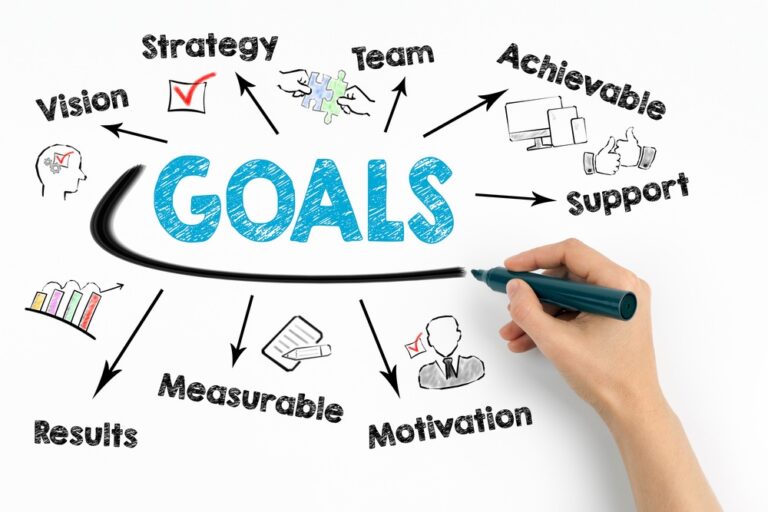In today’s fast-paced and ever-evolving job market, staying ahead of the curve and relevant in your career is paramount. The changing world of work requires employees to be proactive in identifying and addressing their skills gaps. This blog post will guide you through the process of recognising those gaps and taking steps to bridge them effectively.
1. Self-Reflection and Awareness
The first step in identifying your skills gaps is self-reflection and self-awareness. Take the time to assess your current skill set honestly. Here are some questions to help you get started:
- What are my strengths and weaknesses in my current role?
- Are there specific tasks or responsibilities I struggle with?
- Do I feel confident in using the latest tools and technologies related to my job?
- Have I received feedback from peers, superiors, or clients about areas where I could improve?
- Am I up to date with industry trends and best practices?
By answering these questions, you’ll gain a clearer understanding of where your skills might be lacking.
2. Seek Feedback
Feedback is a valuable source of information when it comes to identifying your skills gaps. Don’t hesitate to ask for feedback from your colleagues, managers, or mentors. They may provide insights into areas where you can improve or offer suggestions for skill development.
Additionally, consider conducting 360-degree feedback surveys to gather input from multiple perspectives. This can help you gain a more comprehensive view of your strengths and weaknesses.
3. Stay Informed About Industry Trends
The job market is constantly evolving due to technological advancements, economic shifts, and changing consumer preferences. To identify skills gaps, you must stay up to date with industry trends and insights. Subscribe to relevant industry publications, attend webinars, and participate in conferences or workshops. Being aware of emerging trends will help you understand which skills are becoming more valuable and in-demand.
4. Develop a picture of Future Success
Having a vision of success can help you pinpoint the skills you need to make that vision a reality them. Ask yourself:
- What does success look like for me?
- If my career progressed perfectly in the next 12 months what would be different?
- What skills are required to achieve that?
Once you’ve described your vision, you can identify the skills that are essential for reaching them.
5. Conduct a Skills Audit
A skills audit involves evaluating your skills against the specific requirements of your current or desired job role. Here’s how to conduct a skills audit effectively:
- Create a list of the skills and qualifications required for your role or the one you aspire to.
- Compare this list with your existing skills.
- Identify the gaps between the skills you possess and those required for the role.
This exercise will give you a clear picture of which skills you need to develop or enhance.
7. Embrace Continuous Learning
Recognising your skills gaps is just the first step. The next crucial step is taking action to bridge those gaps. Continuous learning is key to skill development. Consider the following strategies:
- Enroll in relevant courses or training programmes
- Pursue certifications and qualifications in your field
- Participate in webinars, workshops, or seminars
- Join professional associations and networking groups
- Seek mentorship or coaching from experts in your industry
8. Develop a Personalised Learning Plan
To address your skills gaps effectively, create a personalised learning plan. This plan should outline your goals, the specific skills you want to develop, and the timeline for achieving them. Break down your learning objectives into manageable steps and regularly assess your progress.
9. Practice and Apply Your Skills
Acquiring new skills is only half the battle. To truly master them, you must practice and apply what you’ve learned. Look for opportunities within your current job to take on projects that allow you to put your newly acquired skills into action. Practical experience is often the best way to imbed what you’ve learnt.
10. Seek Support and Feedback
Don’t hesitate to seek support from mentors, colleagues, or peers as you work on your skills development. They can provide guidance, share their experiences, and offer constructive feedback. Remember that learning is an ongoing process, and feedback is a valuable tool for improvement.
11. Monitor Your Progress
Regularly assess your progress and make adjustments to your learning plan as needed. Celebrate your achievements, no matter how small, this will help you to stay motivated throughout your skills development journey.
In conclusion, identifying and addressing skills gaps is a fundamental aspect of thriving in the changing world of work. Self-awareness, asking for feedback, industry awareness, and continuous learning are essential components of this process. By taking a proactive approach to skill development, you can stay competitive, advance in your career, and skills development at work doesn’t only benefit your working life, but in your personal life too.
So, remember professional growth is an investment in your future success.
Experts in Career Development
At Team AO, we know the secret to unlocking the potential of your people is by aligning their career development goals aligned with your business objectives. We have a comprehensive range of programmes to help you empower employees to take ownership of their development.



